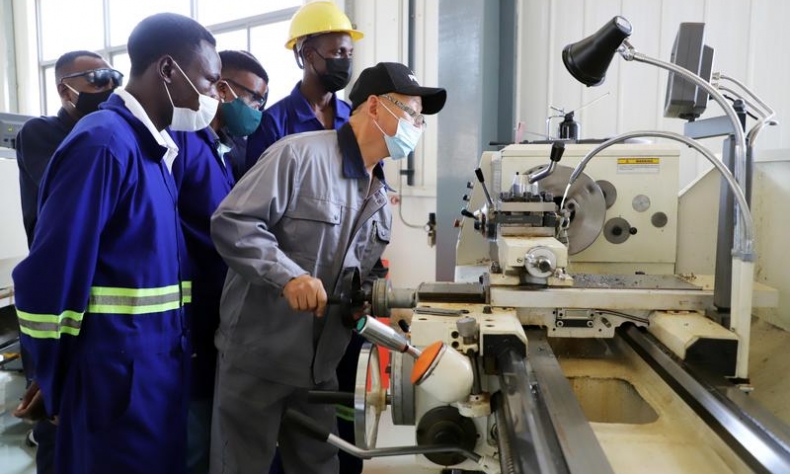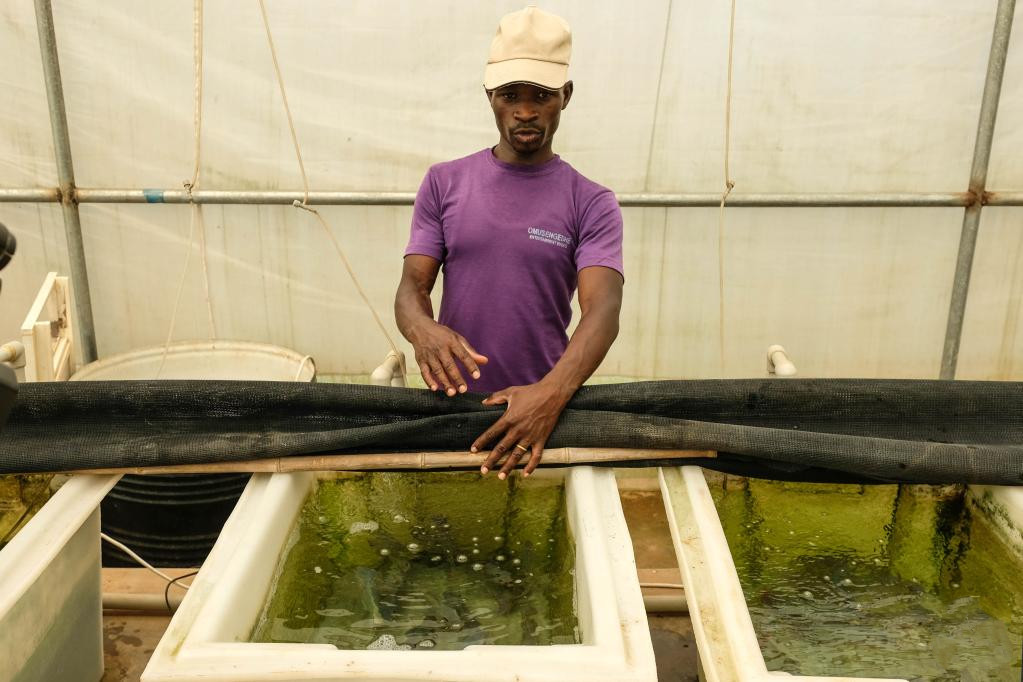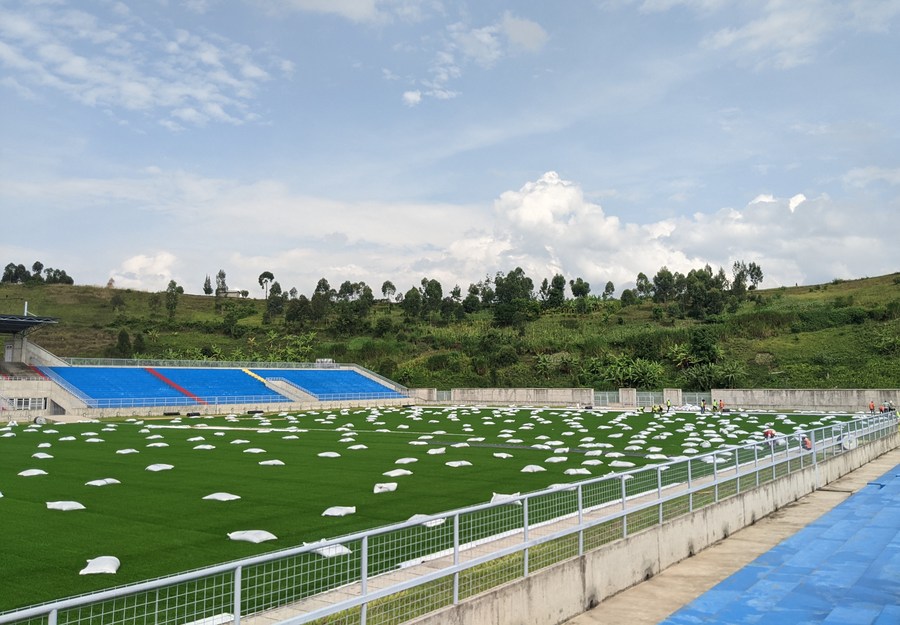Cementing Ties

Uganda should access funding from partners, not aid, and that is what China is doing.
For the past six decades, Uganda and China have enjoyed remarkable bilateral relations and Uganda being recently elected to chair G77+China mechanism is set to drive the relationship to even greater heights.
That’s according to Uganda’s First Deputy Prime Minister Rebecca Kadaga, who made the remarks recently while speaking at an event to mark the 74th anniversary of the founding of the People’s Republic of China.
In response, the charge d’affaires at the Chinese Embassy in Uganda, Fan Xuecheng, toasted the long-standing friendship between the peoples of China and Uganda.
He said that China and Uganda have forged an unbreakable fraternity through mutual support for each other’s struggle against imperialism and colonialism.
Uganda was elected to be the pro tempore (temporary) presidency of G77+China (Group of 77+China) at the UN in New York on 22 September. The group was founded on 15 June 1964 by 77 developing nations.
Optimism in Uganda
Ugandans, both the public and government officials, are optimistic about the country being elected to chair G77+China, while the local Chinese community in the country also welcomed the move.
A Chinese businessman in Uganda’s capital Kampala, Wang Li, said, ‘‘It is good for Uganda to chair the mechanism because that will further cement its relationship with China.”
Steven Okello, a local Ugandan politician, said that many Ugandans nowadays travel to China for business and he believes that as Uganda chairs the G77+China, they will go in bigger numbers.

According to Uganda’s Permanent Representative to the UN, Adonia Ayebare, the election was held during the working session of the 47th Meeting of Foreign Affairs Ministers under the presidency of Cuba.
In a media interview, while speaking about Uganda being elected to chair G77+China, Ayebare said, “Uganda will play a key role in the decision-making process at international forums at the time when the world is facing multiple crises. This new development will position the country as a major participant in the key decision-making process on international forums.”
Ayebare also confirmed that Uganda will be hosting the 19th Non-Alignment Movement (NAM) and Third South Summit in Kampala next year, something he said is worth being proud of.
What is G77+China?
G77+China is the largest intergovernmental organisation of developing countries in the UN, which provides the means for the countries of the Global South to articulate and promote their collective economic interests and enhance their joint negotiating capacity on all major international economic issues within the UN system, as well as promote South-South cooperation for development.
The current coalition of 135 developing countries (including China) was founded by 77 developing countries who were signatories of the “Joint Declaration of the 77 Developing Countries,” issued at the end of the first session of the United Nations Conference on Trade and Development (UNCTAD) in Geneva in 1964.
The group was credited with a common stance against apartheid and for supporting global disarmament.
Cuba was the past chair and has handed over the mantle to Uganda.

The annual G77 meeting is convened at the start of regular meetings of the UN General Assembly. This year’s General Assembly attracted a large number of countries from both the Global North and South.
Jeje Odongo, Uganda’s foreign minister, reiterated that Uganda’s chairing of G77+China will bring the country closer to China, which will lead to more trade between the two countries.
Uganda’s Vice President Jessica Alupo urged Ugandans to use the period of its presidency of G77+China to consolidate relationships with member countries and acquire expertise from China, especially in agriculture.
China’s role in G77+China
Generally, China is not a member of the G77, but it identifies with the member countries and supports them in many ways.
The G77 countries recognise China as their major partner and supporter. The Chinese Government provides consistent political support to the G77 and has made financial contributions to the group since 1994. As a result, because of China’s support, official G77 statements are delivered in the name of the Group of 77 and China or G77+China.
It is because of that relationship that China has supported many African countries in their development programmes. According to the Institute of Developing Economies, China is presently involved in infrastructure projects in 35 African countries. A concentration of projects are found in Angola, Nigeria and Sudan. However, China is planning a new range of projects in other countries, especially in the Democratic Republic of the Congo.

Uganda’s presidency of G77
Days after Uganda was elected to chair G77+China, its relationship with China seemed to receive a major boost.
On 29 September, according to Uganda’s New Vision newspaper, China announced that it would support Uganda for the construction of the East Africa oil pipeline. Irene Bateebe, permanent secretary at the Ministry of Energy and Mineral Development, said in a media interview, “We have obtained the assurance of China’s participation in the project.”
Wang Chenxu, first secretary of the Chinese Embassy in Uganda, confirmed knowledge of the project’s finance.
Meanwhile, Augustus Nuwagaba, international consultant on economic transformation, said that what China is doing for Uganda, especially as far as supporting the construction of the oil pipeline is concerned. He said Uganda should access funding from partners, not aid, and that is what China is doing.
“Uganda is a developing country and it is open to financial partnerships, which China is fulfilling. Our relationship with China is not new, but with G77+China it will be even stronger. We have been partners for a long time. China’s open policy to countries, such as Uganda, is good. As a country, we are enjoying a trade relationship with China,” said Nuwagaba.
Meanwhile, First Deputy Prime Minister Kadaga acknowledged China’s contribution to Uganda’s development, as well as China’s contribution to global governance through initiatives like the Global Security Initiative, the Global Development Initiative and the Global Civilisation Initiative.
In an article penned for New Vision, Fan from the Chinese embassy said that China will remain an important opportunity for the world’s peace and development, and will work together with the rest of the international community to uphold true multilateralism, achieve universal security and common prosperity in the world and steer the giant ship of human development to a brighter future.
 Facebook
Facebook
 Twitter
Twitter
 Linkedin
Linkedin
 Google +
Google +










